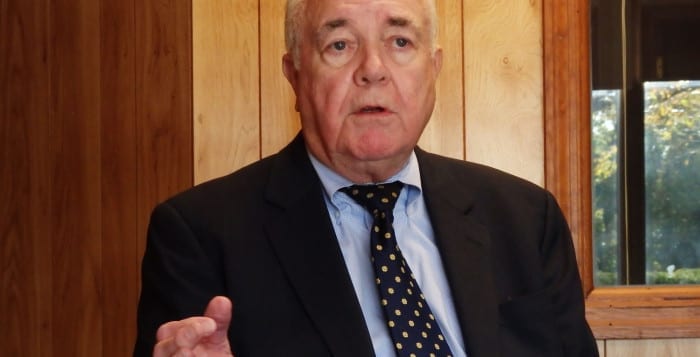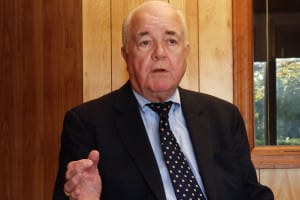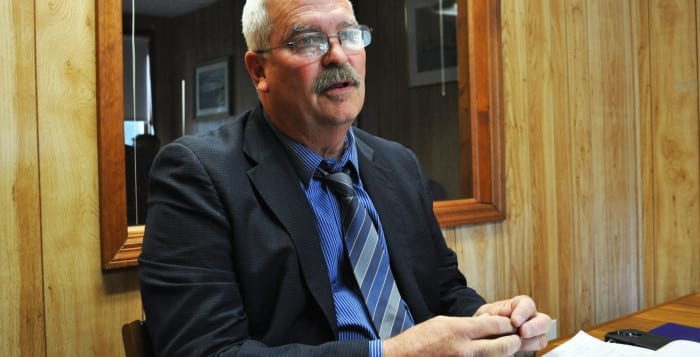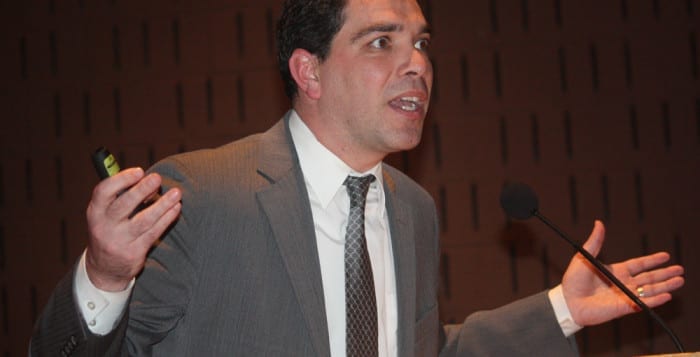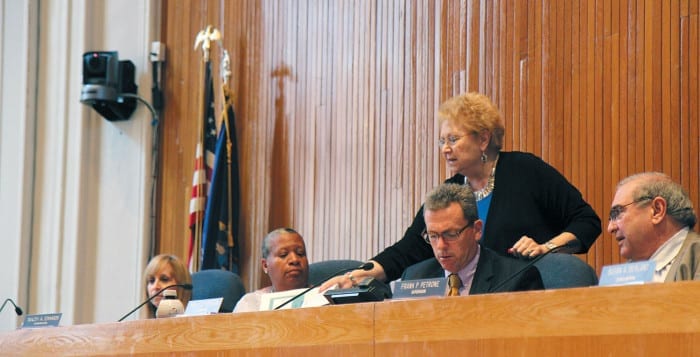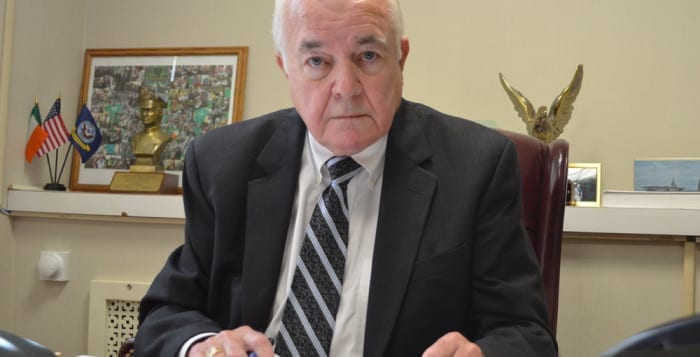By Elana Glowatz
Two neighborhood leaders are battling for Brookhaven Town’s 1st Council District seat, with incumbent Valerie Cartright leaning on her record of community involvement and challenger Ed Garboski on his background as a small business owner and civic president.

In a debate at the Times Beacon Record Newspapers office last week, Cartright (D-Port Jefferson Station), who is seeking her second term on the town board, and the Republican Garboski, president of the Port Jefferson Station/Terryville Civic Association, did not stand apart on many of the area’s biggest issues.
Both said they agreed that repaving town roads, upgrading parks and preserving open space were important, as well as holding the line on taxes. They also made similar statements about the need to crack down on illegal housing in the area, specifically overcrowded homes rented to raucous Stony Brook University students — Cartright and Garboski said the town has to work with the university to alleviate the problem.
But one issue for which they had different solutions was the pace of the town’s approval process for businesses looking to locate or expand in Brookhaven. Many stakeholders have argued the process for site plan approval and other planning and zoning concerns is slow and deters business, particularly in a sluggish economy. The candidates said they heard those complaints and had plans to address them.
“I was a home improvement contractor and had to deal with the Town of Brookhaven,” Garboski said, adding that he also witnesses the movement of business in his role as civic president. “The bureaucracy … [has] just too many rules and regulations.”

He said the town should keep watch on businesses, but needs to move things along. According to the challenger, his first step would be determining whether the holdup is a personnel issue or can be attributed to the approval process itself.
The incumbent, on the other hand, pointed to a department restructure in the town in January 2014 — among other changes, the town board split up the building and fire prevention department, putting building into the planning department and fire prevention into the public safety department.
“I think it’s time for us to sit down as a board and evaluate that restructuring to see if it’s been more effective,” Cartright said. “To see if there’s any additional stuff that needs to be restructured.”
Another topic that received different responses was the issue of drug abuse and addiction on Long Island. While Garboski stressed the need for outreach programs in neighborhood schools and educating parents so they can identify a child with a drug problem, Cartright said Brookhaven should be assisting community groups that are already tackling the issue and should work with the county to get homeless people, many of whom struggle with addiction, the services they need.
In endorsing herself for re-election, Cartright said she has worked to bridge the gap between the government and the community, touting the bulletin that she sends out to residents with information about upcoming public hearings and proposed laws, among other outreach efforts.
Garboski said he agreed that bulletin is helpful to people like him, who are keeping an eye on town news. For his own part, he emphasized his experience as a business owner with negotiating and budgets, and said he has time to put toward alleviating quality of life issues.
The two community advocates will face off on Nov. 3.


